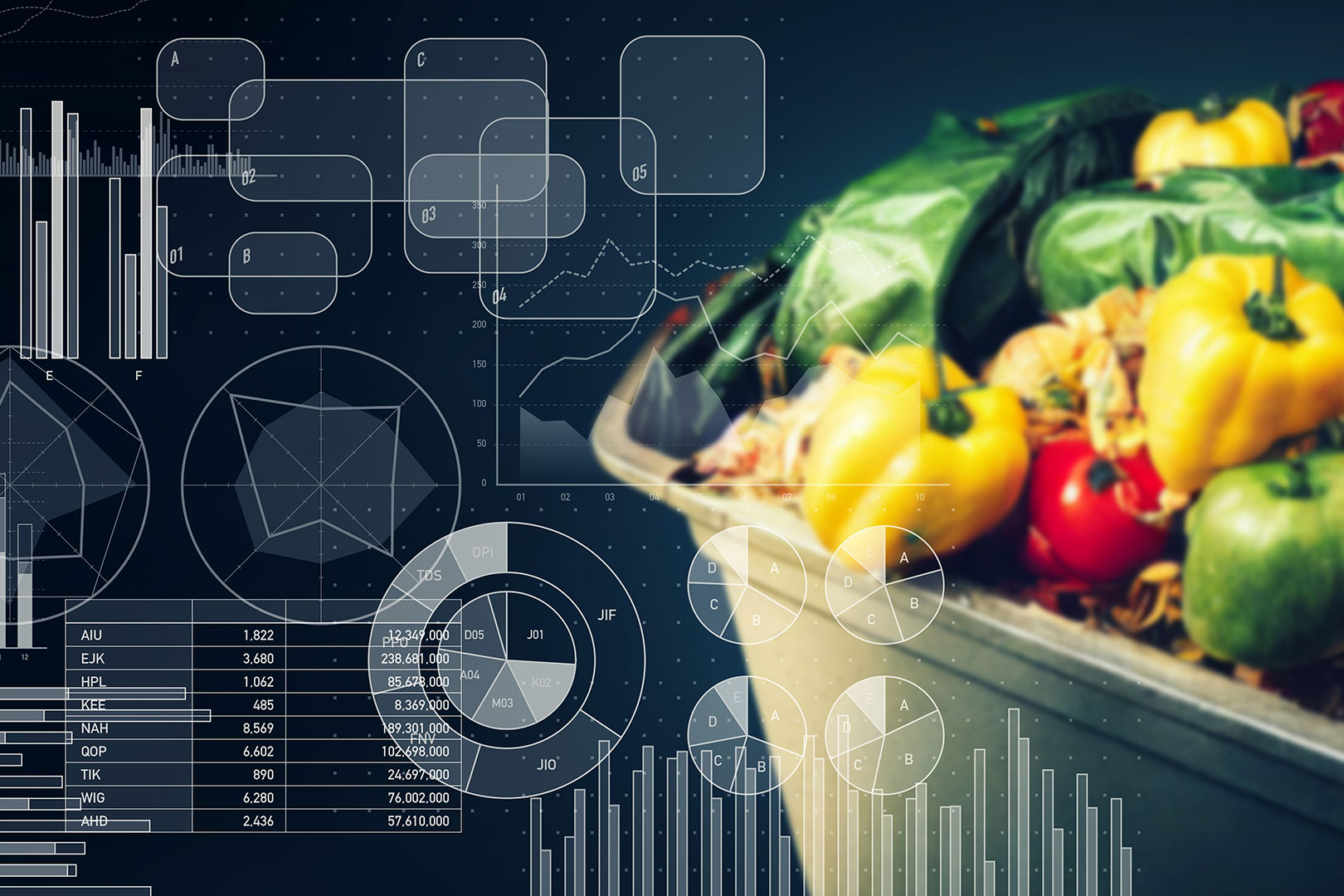
The world of food production is undergoing an unprecedented transformation. As the pressure mounts on food producers to deliver better, cheaper, and more sustainable products, turning to data analytics is not just an option—it’s a necessity.
Data-driven decisions are fast becoming the backbone of successful food production systems, particularly in areas such as supplier selection, product consistency evaluation, and ensuring cost-effectiveness.
This article will delve deeper into this trend and explore the real-world benefits experienced by companies that have embraced data analytics in their operations and the challenges faced in doing so.
Selecting Suppliers with Precision
Choosing the right suppliers is crucial in the food production industry. Missteps can lead to compromised product quality, regulatory challenges, and even severe economic implications.
Data analytics offers a more scientific approach to this process. By evaluating suppliers on quantifiable metrics—such as delivery times, quality consistency, and price fluctuations—companies can make decisions based on objective facts rather than gut feelings. This leads to partnerships that are not only efficient but also sustainable in the long run.
Quality – Evaluating the Consistency of Delivered Products
The consistency of raw materials is paramount in ensuring the standard of the final product. Data-driven techniques allow companies to monitor variations in the quality of supplies continuously. Sensors, real-time monitoring systems, and AI algorithms can detect discrepancies in products—from grain size to moisture content—ensuring that only the best materials are used in production.
Ensuring Cost-Effectiveness
Financial prudence is a cornerstone of any successful enterprise. With razor-thin margins in the food production industry, ensuring cost-effectiveness becomes even more critical.
Data analytics provides a crystal-clear picture of where money is being spent, which processes are most expensive, and where efficiencies can be gained. By understanding these dynamics, companies can streamline operations, negotiate better contracts, and optimise resource allocation.
Continual Improvement and SRM (Supplier Relationship Management)
Data doesn’t just give a snapshot; it offers a continually evolving picture of operations. This dynamic nature of data allows companies to practice continual improvement, refining processes, and approaches based on the latest data.
This philosophy extends to SRM, where data can be used to foster better communication, predict supplier trends, and preempt potential challenges.
Strategic Partnerships through Data
With a deeper understanding of their suppliers, food production companies can cultivate strategic partnerships. These relationships, grounded in shared data and insights, can lead to joint ventures, collaborative research, and shared growth strategies that benefit all parties involved.
Challenges of Data in Food Production
However, the road to data-driven food production isn’t without its challenges.
These difficulties can hinder the potential benefits and must be addressed systematically.
- Data Integrity: Erroneous data can direct decisions astray, potentially causing significant disruptions in the supply chain and product quality.
- Data Security: With increased digitisation comes the risk of cyber-attacks. Protecting sensitive business information and ensuring the confidentiality of proprietary data is paramount.
- Data Collection – Onboarding & Gathering: Collecting all relevant data is a massive undertaking. The initiation phase, or onboarding, can be particularly challenging as companies try to understand what data they need and how to acquire it. This process can be overwhelming without the use of SaaS solutions, such as SourceDogg, that streamline data onboarding and collection.
- Data Connection: The data necessary for food production decisions can be spread thin across multiple systems. These could range from quality control systems, safety protocols, production metrics, and operational data to ERP systems that monitor spend.
Additionally, third-party data sources, such as financial credit systems like CreditSafe, can provide vital information on supply risk and resilience. Connecting all these data sources and ensuring seamless communication between them becomes vital. Without this connection, the true potential of data analytics remains unrealised.
- Data Diversity and Relevance: Given the multiple sources of data, ensuring that only relevant and meaningful data is analysed is crucial. Distinguishing between what’s essential and what’s superfluous becomes an ongoing challenge.
- Data Overload: With so much data at hand, there’s a risk of information overload. Companies need to be judicious about what metrics they prioritise and focus on, ensuring that they don’t get lost in a sea of numbers without actionable insights.
The challenges of data in food production underscore the importance of robust data management strategies.
By understanding these challenges and proactively addressing them, food production companies can harness the full power of data-driven decisions. Solutions like SourceDogg and third-party integrations, such as CreditSafe, provide a pathway to overcome some of these challenges, guiding the industry towards a more efficient and sustainable future.
Navigating the intricate maze of data in food production is a task easier said than done. As outlined above, the challenges are multifaceted, ranging from the initial steps of onboarding and collecting data to ensuring seamless connection between varied systems. However, a solution is at hand.
Why SourceDogg?
Supplier Master Data Management
One of the significant issues faced by food production companies is maintaining consistent, accurate, and up-to-date supplier information. SourceDogg addresses this head-on, providing a centralised platform for supplier master data, ensuring you always have the latest and most accurate information at your fingertips.
Unified Data Collection and Connection
With SourceDogg, the challenge of scattered data becomes a thing of the past. Whether it’s quality metrics, safety protocols, or third-party credit systems, SourceDogg offers the capability to connect all these systems seamlessly. All your data and documentation are stored and managed in one easily accessible place.
Streamlined RFX Processes
Crafting RFX processes can be daunting, especially when different buying types come with varied policies and procedures. SourceDogg simplifies this with intuitive workflows, ensuring that your RFX processes are aligned with best practices, efficient, and fully compliant.
Comprehensive Supplier Relationship Management (SRM) Platform
Monitoring performance, devising action plans, and executing continuous improvement strategies are pivotal in today’s competitive landscape. SourceDogg’s SRM platform offers a panoramic view of supplier performance, enabling you to quickly identify areas of concern, craft actionable strategies, and drive continual improvement in your supply chain.
We’re Here to Help You Master Your Supplier Data
In the dynamic world of food production, staying ahead requires not just data, but data managed, analysed, and acted upon efficiently. It’s evident that a comprehensive supplier data solution is not just desirable—it’s essential.
Don’t let the challenges of data stifle your growth.
Embrace the comprehensive capabilities of SourceDogg today. Streamline your processes, foster stronger supplier relationships, and drive your business to new heights. Because in the world of food production, the right data, managed the right way, is the recipe for success.
Speak to one of our food industry supply chain specialists today, and revolutionise your approach to supplier data in food production.





